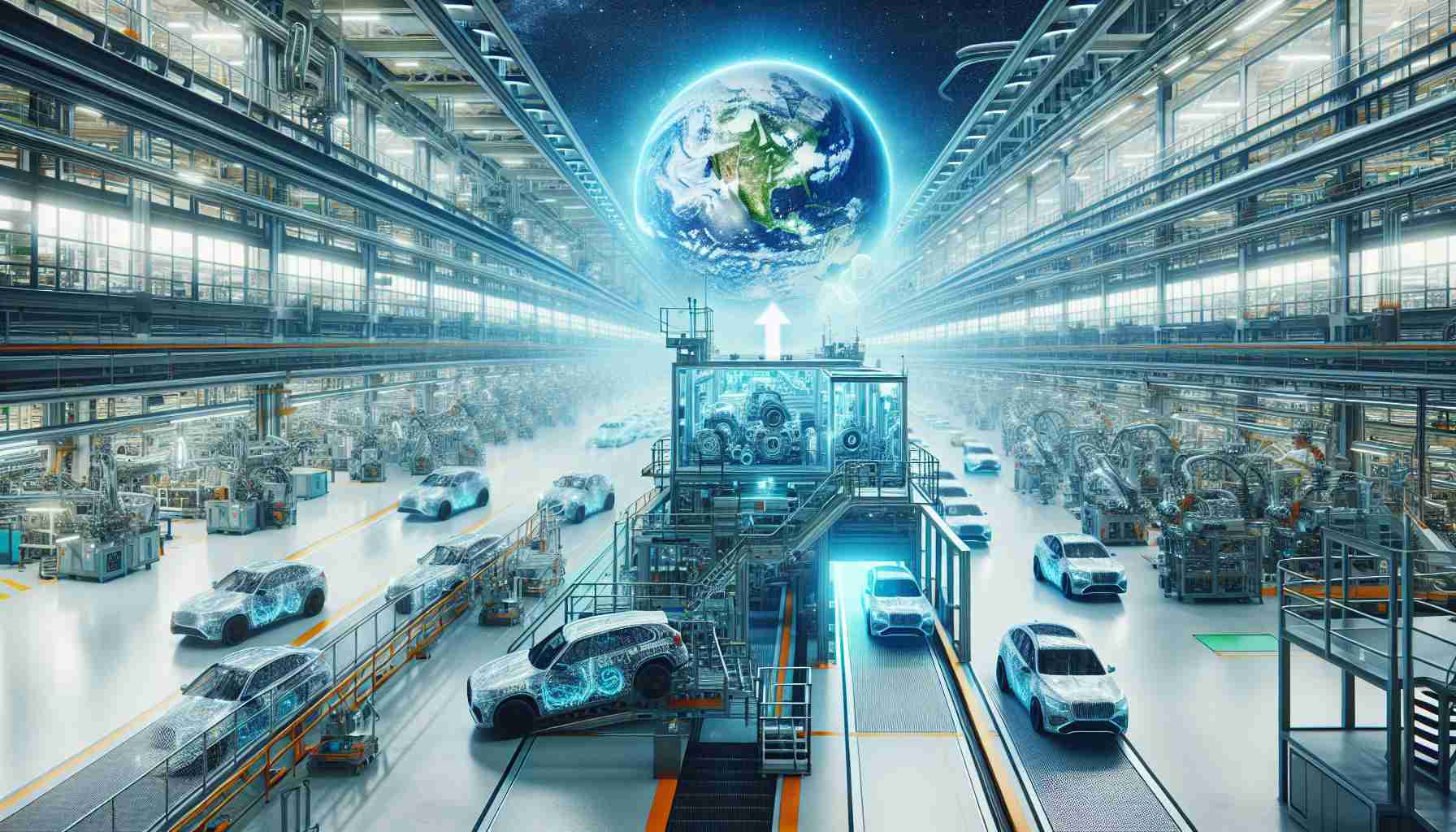BMW Group Plant Regensburg is set to embrace the power of hydrogen in its logistics operations. Beginning in 2026, this renowned facility will introduce hydrogen-powered tugger trains and forklift trucks to efficiently transport components across various production areas, including the press shop and assembly line. This initiative is part of a broader vision to enhance production sustainability, moving towards the BMW iFACTORY concept.
The shift from electric to hydrogen propulsion is expected to significantly optimize the logistics processes at the plant. According to project insights, this transition not only diversifies the energy sources used but also maximizes the use of available space. Hydrogen refueling will be swift, resembling the convenience of traditional fuel stations, making it an attractive option.
To support this ambitious plan, a comprehensive pipeline network spanning two kilometers will be installed, featuring six decentralized filling stations by early 2026. These stations will supply the logistics fleet with an estimated annual consumption of around 150 tonnes of hydrogen. Currently, the plant operates approximately 230 electric tugger trains and forklifts, with the full transition expected to be completed by 2030.
BMW Regensburg has been a leader in automotive manufacturing since 1986, producing various models daily. With this innovative move towards hydrogen, BMW is not just enhancing its logistic efficiency but also committing to a sustainable future in vehicle production.
The Future of Logistics: BMW Group Plant Regensburg to Go Hydrogen
BMW Group Plant Regensburg is poised to revolutionize its logistics operations by embracing hydrogen technology, with the official rollout beginning in 2026. This progressive step is integral to BMW’s strategic vision of sustainable production under the BMW iFACTORY concept.
Innovations in Hydrogen Logistics
The introduction of hydrogen-powered tugger trains and forklift trucks represents a significant shift in the plant’s logistics model, which currently relies on a fleet of approximately 230 electric vehicles. The decision to transition to hydrogen is rooted in its potential to enhance efficiency and sustainability during component transportation across production zones, such as the press shop and assembly line.
Key Features of the Hydrogen Initiative
– Hydrogen Refueling Stations: Six decentralized filling stations will be established, supported by a two-kilometer pipeline network. This infrastructure will facilitate rapid refueling, similar to conventional fuel stations, allowing for minimal downtime in operations.
– Hydrogen Consumption: The logistics fleet is projected to consume around 150 tonnes of hydrogen annually. This metric underscores the ambitious scale of BMW’s hydrogen initiative.
– Projected Completion: The full transition to hydrogen operations is expected to be finalized by 2030, aligning with BMW’s long-term sustainability goals.
Pros and Cons of the Hydrogen Transition
Pros:
– Sustainability: Shifting to hydrogen reduces dependency on fossil fuels and lowers carbon emissions, supporting global sustainability targets.
– Operational Efficiency: Hydrogen-powered vehicles can offer rapid refueling and are potentially more cost-effective in terms of energy use compared to traditional electric systems.
Cons:
– Infrastructure Costs: Establishing a hydrogen refueling network requires significant upfront investment.
– Storage Challenges: Hydrogen must be stored under high pressure, necessitating advanced safety measures and technology.
Use Cases and Market Trends
BMW’s move to hydrogen is not just an isolated event; it reflects a growing trend in the automotive industry toward alternative fuel sources. As more manufacturers explore hydrogen technology, it may lead to wider applications beyond logistics, including vehicle propulsion and energy generation in factories.
Security and Sustainability Aspects
As the automotive industry increasingly prioritizes sustainability, BMW’s initiative contributes to a greener manufacturing process. Hydrogen as an energy source is notable for its potential to produce zero greenhouse gas emissions when generated from renewable sources. However, attention must be paid to the entire hydrogen production and distribution lifecycle to ensure its environmental benefits are fully realized.
Future Predictions
The transition to hydrogen-powered logistics at BMW Regensburg could influence broader market dynamics within the automotive sector. As advancements in hydrogen technology continue, we may witness increased investment and development, pushing the industry towards a zero-emission future.
For more information on BMW and its commitment to innovation and sustainability, visit BMW’s official site.

